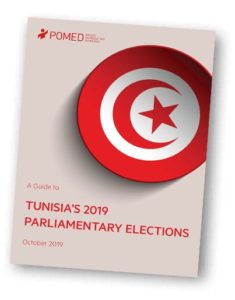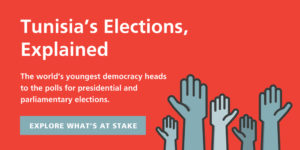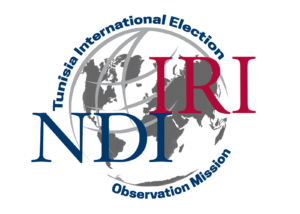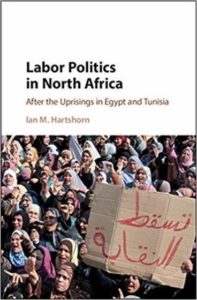
Tunisia’s second presidential elections since the Arab Spring symbolize another step in the country’s promising democratic transition, The New Arab reports. The first round took place on September 15, and the run off is scheduled for October 13. In addition, Tunisians go to the polls this Sunday to vote in legislative elections.
But Saudi Arabia and the United Arab Emirates fear that a successful transformation in Tunisia could threaten their own regional interests. As a result, they have continuously sought to undermine its relatively successful reformist path, argues analyst Jonathan Fenton-Harvey.
Tunisia’s Islamist Ennahda party could once rely on the support of the country’s socially conservative, less developed interior, but it now faces a challenge from populist outsiders who challenge the main parties over poverty, Reuters reports (HT:FDD):
Having disappointed Islamists by rebranding itself a “Muslim democrat” party, and poor Tunisians by joining governments that failed to improve their lot, it is trying to woo back its base. But after years in government making the compromises it saw as necessary to maintain social order and tackle deficits, it cannot easily regain its old, popular image as a party of revolution without rejecting its own recent history.

Carnegie
This Sunday, October 6, Tunisians will cast ballots in their country’s second free and pluralistic parliamentary elections since the 2011 revolution, choosing the 217 members of the Assembly of the Representatives of the People (ARP) for a new five-year term. More than 1,500 lists are competing in 33 districts in Tunisia and abroad, the Project on Middle East Democracy writes.
At least a third of the lists is independent, adding to the challenge of understanding a political landscape already fractured into a multitude of parties with few substantive differences, AFP adds.
“There is no clear polarization, which is accentuating the lack of enthusiasm,” said Michael Ayari, Tunisia analyst with the Crisis Group.
“A Guide to Tunisia’s 2019 Parliamentary Elections,” written by POMED staff (above), discusses the political context of the October 6 vote; outlines the electoral system, timetable, and other aspects of the process; and describes some of the most prominent parties and coalitions.
 The International Republican Institute (IRI) and the National Democratic Institute (NDI) joint election observation mission that will be deployed during Tunisia’s parliamentary elections will release their preliminary findings on Monday, October 7, 2019 at 3:00 p.m. CET at the Concorde Hôtel Les Berges du Lac.
The International Republican Institute (IRI) and the National Democratic Institute (NDI) joint election observation mission that will be deployed during Tunisia’s parliamentary elections will release their preliminary findings on Monday, October 7, 2019 at 3:00 p.m. CET at the Concorde Hôtel Les Berges du Lac.
Delegation leaders Andrew Natsios, former administrator of the U.S. Agency for International Development and director of the Scowcroft Institute of International Affairs and Anna Luhrmann, former member of the German parliament and deputy director of the Varieties of Democracy (V-Dem) Institute will present the preliminary statement on behalf of the delegation.
 Prior to the Arab Uprisings of 2010-11, formerly quiescent trade unions became key sites of contention. Union politics across both Tunisia and Egypt were transformed, the Project on Middle East Political Science notes. While Tunisia witnessed the apparent success of worker power, Egypt experienced economic crisis and repression. Drawing on extensive interviews, Ian M. Hartshorn explains this phenomenon in his new book, Labor Politics in North Africa: After the Uprisings in Egypt and Tunisia, (Cambridge University Press, 2018).
Prior to the Arab Uprisings of 2010-11, formerly quiescent trade unions became key sites of contention. Union politics across both Tunisia and Egypt were transformed, the Project on Middle East Political Science notes. While Tunisia witnessed the apparent success of worker power, Egypt experienced economic crisis and repression. Drawing on extensive interviews, Ian M. Hartshorn explains this phenomenon in his new book, Labor Politics in North Africa: After the Uprisings in Egypt and Tunisia, (Cambridge University Press, 2018).
Join the Washington, D.C., book launch with POMEPS: Monday, October 7, 2019. 12:00-1:30 pm. The Elliott School of International Affairs, Room 505, 1957 E Street NW, Washington, DC 20052. RSVP







